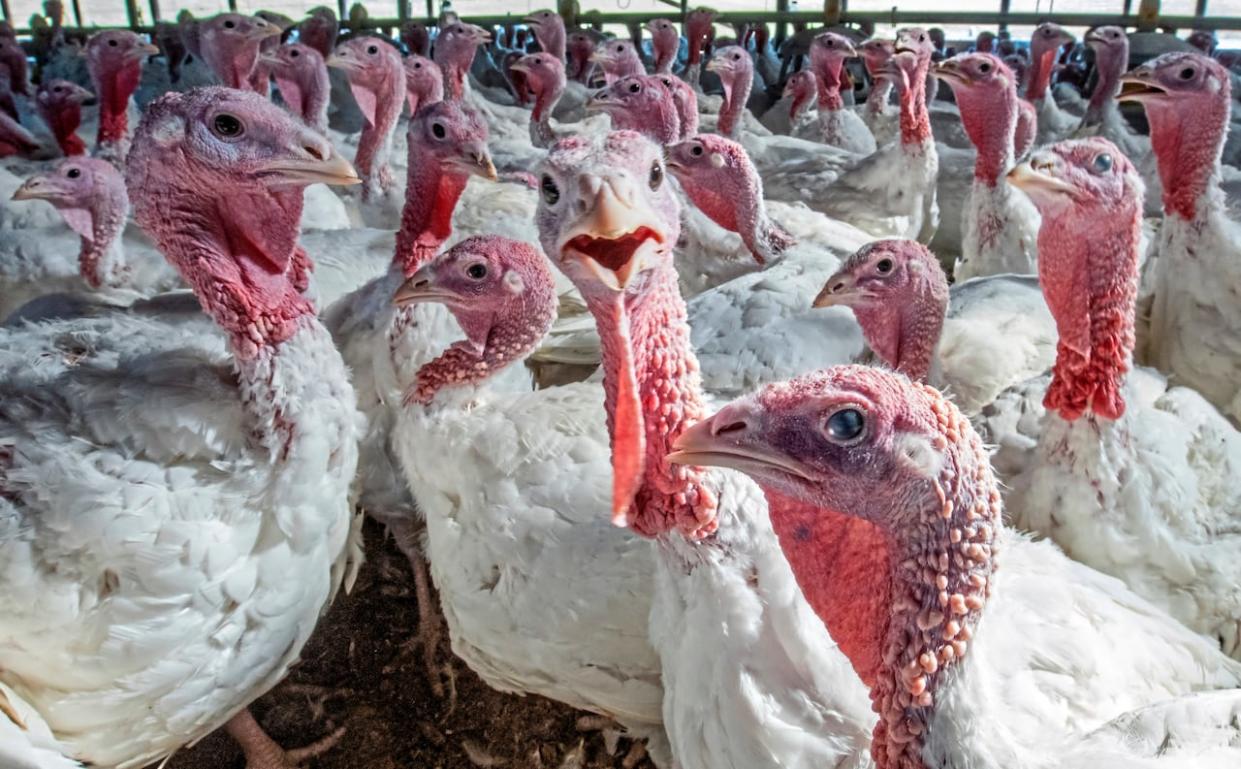A new avian virus has appeared for the first time in southern Ontario — and it's not bird flu

A virus that can wreak havoc on poultry farms and was until now unheard of in the province has appeared in southwestern Ontario, infecting and killing hundreds of turkeys with its arrival
Avian metapneumovirus subtype B (aMPV B), which attacks the respiratory system of birds, and is especially problematic for poultry, resulted in the deaths of 253 turkeys in southwestern Ontario in recent months, according to the World Animal Health Information System.
The turkeys killed by the virus include 166 birds at a farm in Centre Wellington, north of Guelph, and 87 birds at a farm in Huron-Kinloss in Bruce County.
The arrival of the virus in Ontario comes at the same time as concerns continue to mount over a highly contagious form of avian flu, which has made the jump from poultry to cows and even humans.
"For someone in my business, it's very scary because it's a large threat. It's a high risk," said Jorge Cota, the president of Canadian Select Genetics Ltd., a turkey breeder in Putnam, Ont. "We're really tightening things down, and we're on high alert because this can be very devastating."
According to Cota, his job boils down to managing disease risk. That's why bio-security precautions like decontamination of vehicles before they enter his farm property, showers when entering and leaving, and other sanitation processes are the norm for his business and others who supply commercial farmers with their animals.
One of Cota's primary concern lies with how commercial farmers handle news of the outbreak, he said.
Earlier this month, the Feather Board Command Centre (FBCC), which coordinates Ontario's poultry industry in response to disease risks, issued the latest in a number of increasingly urgent warnings to the province's poultry farmers.
It included a recommendation that biosecurity protocols at farms be heightened, and contained a specific nod to increasing concerns for farms in Middlesex, Oxford and Perth counties.
Noting the financial impacts the virus has had on farms in the United States, Cota said those warnings should not be taken lightly.
"Commercial farmers tend not to think at as highly a level as we do about biosecurity, but I'm sure they're aware and nervous. They've heard a lot of stories out of the U.S., and know what could happen to them," he said.
"But, you never know when someone or something is going to bring it onto your farm. Everyone learns eventually, but many people never think it'll happen to them."
LISTEN | Bird virus new kills hundreds of turkeys in southwestern Ontario
In a statement sent to CBC News on Tuesday, farming organization Turkey Farmers of Ontario said it has been aware of the arrival of aMPV in Ontario since late April.
The statement also said it is working with government and industry officials, as well as the FBCC.
"Avian metapneumovirus does not present a food safety risk or human health concern," the statement read.
Moving forward, as someone well-acquainted with disease management, Cota said he expects the arrival of the virus to shake the industry, but isn't sure just how much yet.
"I think it's manageable, but as it is with other diseases, I think we're going to go through some hard times here, and we'll be better off once we go through it," he said.
"I think it's going to affect a lot more people than we think it is, and vigilance is the number one thing farmers need to keep it out of their farms."


